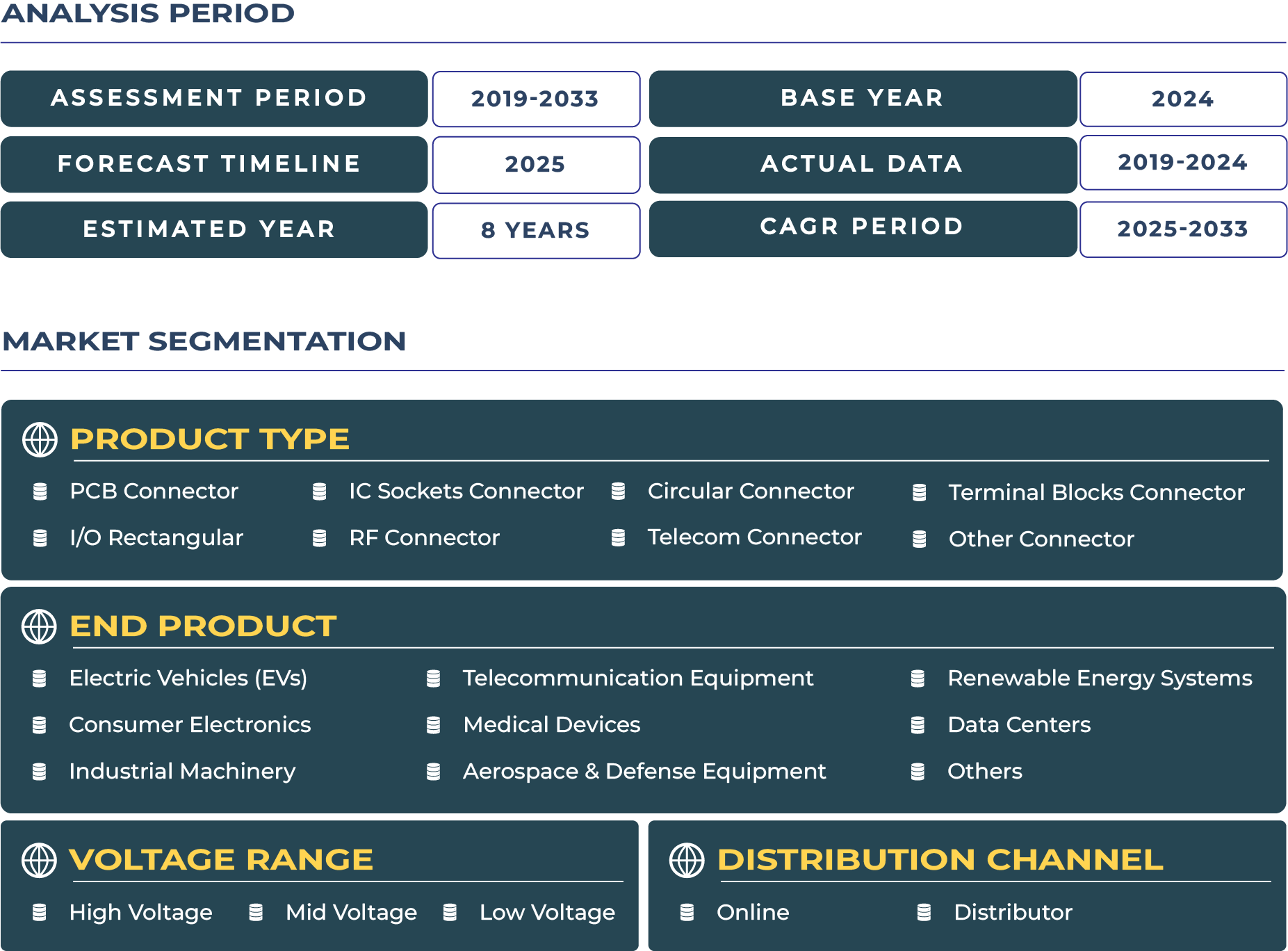Vietnam Connector Market Outlook
Eco-Aware & Modular Connectors: Fueling Vietnam’s Leap in Sustainable Automation
Vietnam is positioning itself at the intersection of sustainability and industrial innovation through modular and recyclable connector technologies. As manufacturing plants expand and green initiatives accelerate, demand is intensifying for connector systems that are both environmentally responsible and scalable. The connector market in Vietnam is projected to reach USD 500 million by 2033, driven by a CAGR of approximately 8%. This growth is fueled by rising investments in factory automation, the rapid expansion of electronics manufacturing, and a nationwide push toward sustainable, modular connector solutions to support advanced manufacturing needs.
Sustainable Modular Connectors Powering Vietnam’s Automation Surge
Vietnam’s factory floor is evolving with cobots, high-speed PCB lines, and precision machinery. These systems demand connector kits that can be rapidly reconfigured while offering traceable, recyclable material formats. Major OEMs in Ho Chi Minh City are now specifying board-to-board modules with quick-release I/O interfaces and circular connectors made from bio-based polymers. Pilot installations in 2025 reduced connector-related changeover time by 40%. Meanwhile, the biopolymers adoption in electronics reinforces Vietnam’s transition toward eco-friendly connector material use.
Primary Growth Drivers vs. Supply Chain and Material Dependencies
Two key growth drivers are accelerating the connector market: the proliferation of wearable tech and a surge in medical devices. Rapid adoption of fitness bands and health monitors has driven up miniaturized connector demand in PCB and RF segments. In parallel, Vietnamese electronics manufacturers producing diagnostic tools for regional markets rely on low-cost, modular connector kits to meet production and regulatory timelines.
However, the industry faces constraints. Supply chain disruptions—post-pandemic logistic uncertainties and raw material scarcity—pose barriers. Coupled with the dependency on few material suppliers, manufacturers experienced up to 20% lead-time delays in sourcing hybrid polymers for recyclable connectors during late 2024. These bottlenecks limit production agility, particularly for modular kits needing multiple connector types.
Accelerating Trends & Strategic ECO-Friendly Manufacturer Opportunities
- Circular CNC Connectors for Automation
Opportunities to capitalize:
- Scalable Modular Cobot Connector Kits: Engineering plug-and-play connector bundles, with reusable I/O modules and recyclable housings, frontloading assembly lines with flexible infrastructure.
- Bio-Polymer Connector Launches: Products made from recycled alloy or biodegradable polymer can service eco-labeled medical and wearable equipment, aligning with GN Vietnam’s sustainable procurement goals.
A Catalyst for Green Connector Adoption
Vietnam’s Ministry of Industry and Trade recently integrated RoHS and WEEE principles into its National Digital Transformation Program 2030. This mandates recyclability and restricted substance compliance within connector assemblies. These regulatory drivers necessitate modular connector designs with full material traceability and packaging mandates, enabling local manufacturers to align with export standards by default.







